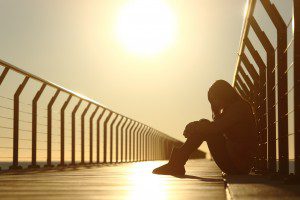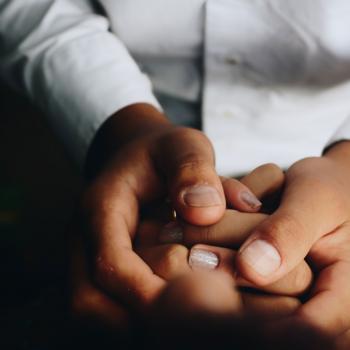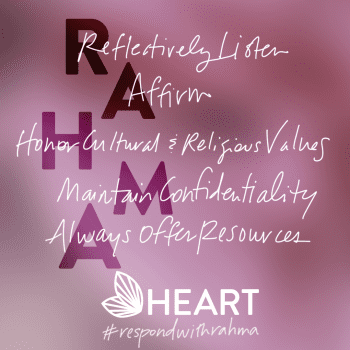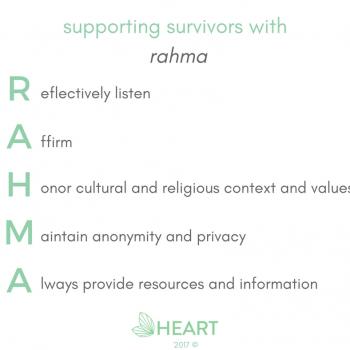MYTH: If you were drunk or had sex before marriage and were sexually assaulted, you deserved it and God is punishing you.
FACT: This is another tactic that the community uses to shame and blame the victim. While religious code does not permit substance abuse or sex outside of marriage, it does not justify the act of violence against another. Islamic tradition states that suffering is not tied to sin. Plenty of people suffer who never deserved it. Similarly, plenty of people do wrong and never see the consequences of those actions in this world. This world is not a place of retribution as Muslims believe the afterlife is for that.
The unfortunate reality is that 1 in 6 women and 1 in 33 men are victims of sexual assault some time in their lifetime. There is absolutely no reason to believe that these numbers are any different for Muslim communities. That means that it is very likely that we all know at least one survivor and it is our collective responsibility to raise awareness and work toward prevention. If you or someone you know was sexually assault or abused, know that it is not your fault, you are not alone, and there are resources to help you.
Sexual violence is a complicated problem, and one that is not addressed through many of the simple solutions that these myths promote. To assert that the sexual assault will be solved if we only adopt stricter religious code such as dress and gender segregation demonstrates a simplistic and poor understanding of a complex and nuanced issue. More than this, reinforcing these myths is horribly irresponsible and further perpetuating the cycle of abuse by silencing victims and further enabling their perpetrators. It is no longer acceptable to be allow community and religious leaders who do not have the professional training or expertise on sexual assault to continue to spread these myths and misinformation. We can do better. We must do better. The safety of our communities depends on it.













